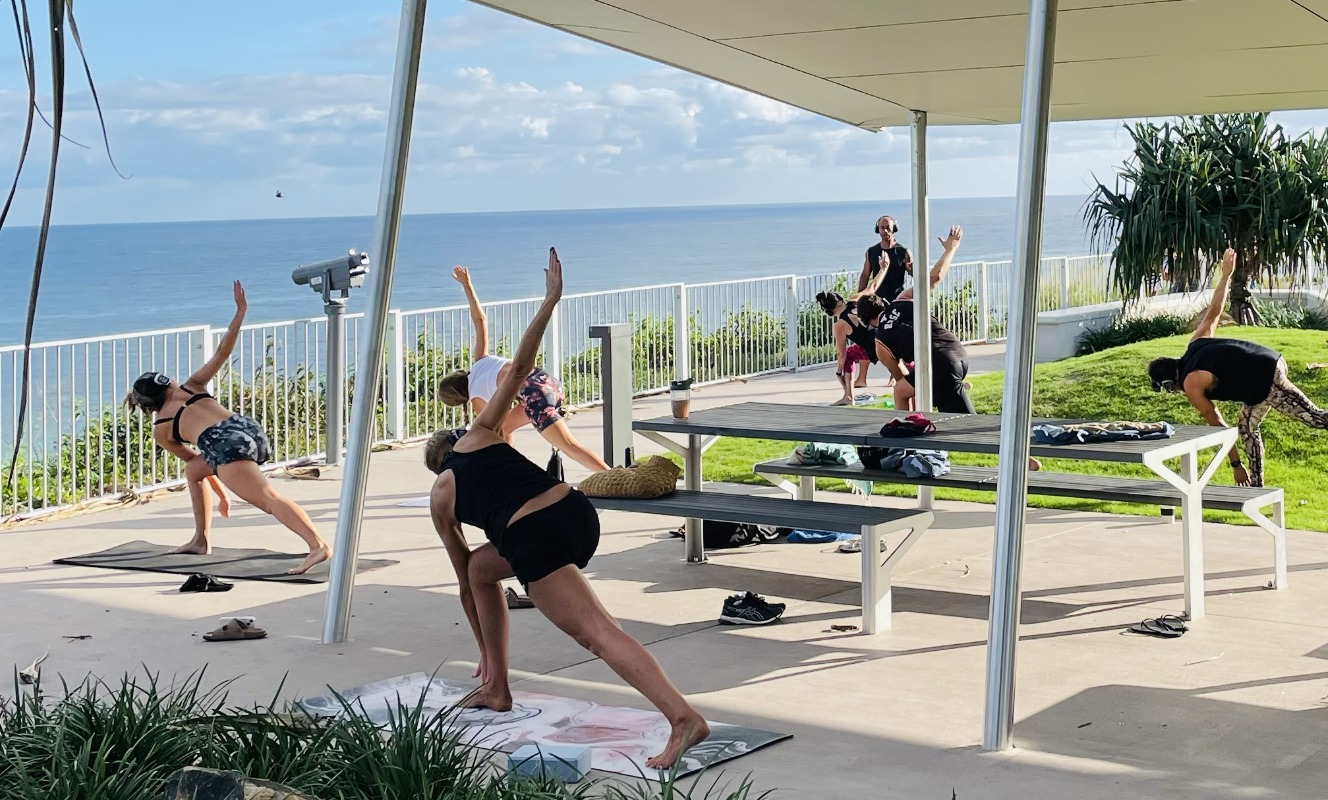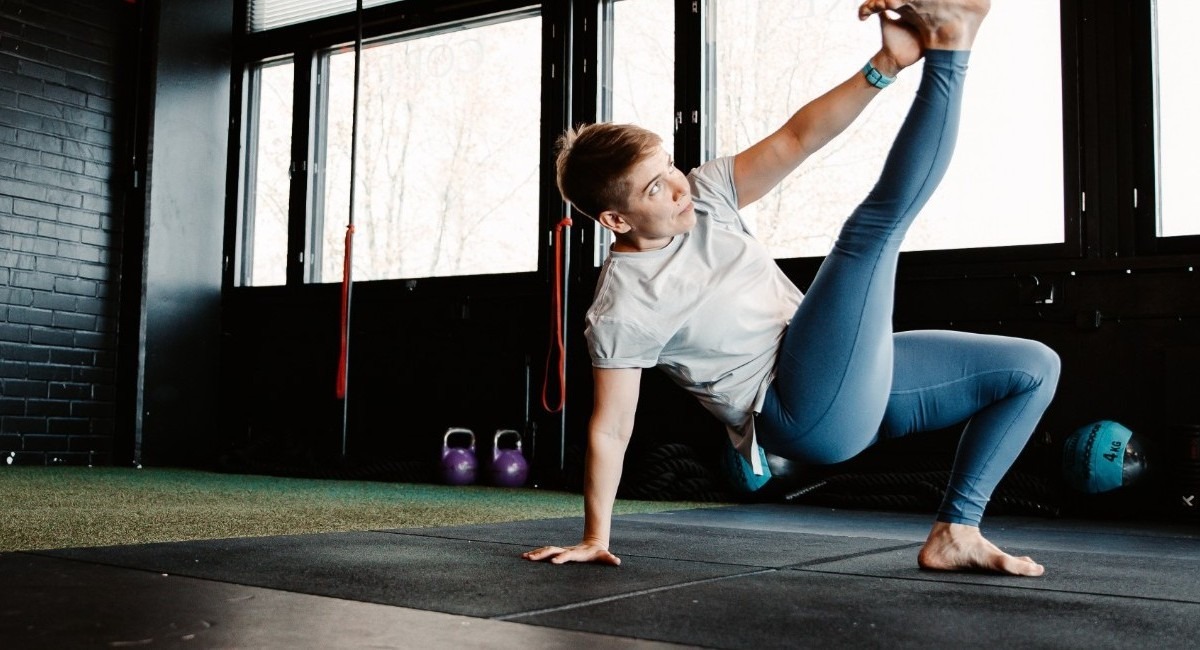
Fitness Mistakes to Avoid When Starting Out.
Starting a fitness journey is empowering, but beginners often face hidden pitfalls that can derail progress or cause injury. From poor planning and overtraining to neglecting nutrition and rest, these common mistakes can sabotage your goals. Learn how to avoid these missteps and build a balanced, sustainable, and effective workout routine that sets you up for long-term success.
💪 Fitness Guru
45 min read · 17, Jul 2025

Fitness Mistakes to Avoid When Starting Out
— A Comprehensive Guide for Beginners
Starting a fitness journey is an exciting decision that can positively transform your health, confidence, and overall lifestyle. But stepping into the world of workouts, nutrition plans, and exercise routines can also be overwhelming, especially when you're just beginning. Without proper guidance, it's easy to fall into traps that can hinder progress, cause injury, or even lead to giving up altogether.
This detailed guide outlines the most common fitness mistakes beginners make, how to avoid them, and how to build a sustainable, rewarding routine that helps you reach your goals without burning out or getting hurt.
1. Skipping Warm-Up and Cool-Down
Skipping warm-ups and cool-downs is one of the most common beginner mistakes. A proper warm-up increases your heart rate gradually, primes your muscles for exertion, and reduces the risk of injury. On the other hand, a cool-down helps your heart rate return to normal and prevents blood from pooling in the extremities.
Avoid This By:
- Spending at least 5–10 minutes warming up with light cardio (e.g., brisk walking, jumping jacks).
- Incorporating dynamic stretches before a workout and static stretches afterward.
2. Doing Too Much, Too Soon
Many beginners go all-in, trying to work out every day or lifting heavy weights right off the bat. While enthusiasm is great, overtraining can lead to muscle soreness, burnout, and injury.
Avoid This By:
- Starting with 3–4 sessions per week, gradually increasing frequency and intensity.
- Allowing your body time to recover, especially when doing resistance training.
3. Focusing Only on Cardio or Only on Weights
Some people stick to the treadmill, while others dive solely into weightlifting. However, balanced fitness includes a mix of cardio, strength training, flexibility, and mobility work.
Avoid This By:
- Incorporating different types of exercises each week:
- Cardio (walking, cycling, running)
- Strength (resistance training, bodyweight workouts)
- Flexibility (yoga, stretching)
- Mobility (dynamic movements, foam rolling)
4. Neglecting Form and Technique
Incorrect form can result in poor results or, worse, injuries. Many beginners try to lift too heavy too quickly or mimic online videos without understanding the mechanics.
Avoid This By:
- Starting with lighter weights and focusing on perfecting technique.
- Considering a personal trainer or fitness class to learn correct form.
- Using mirrors or video recordings for self-correction.
5. Lack of a Clear Plan or Goal
Exercising without a structured plan leads to confusion, lack of progress, and motivation loss. Many beginners hop between different routines or follow fads without understanding why.
Avoid This By:
- Setting SMART goals (Specific, Measurable, Achievable, Relevant, Time-bound).
- Following a beginner-friendly fitness program that aligns with your objectives.
- Tracking your workouts to measure progress.
6. Ignoring Nutrition
Exercise alone won't deliver results if you're not supporting it with the right nutrition. Beginners often make the mistake of undereating, overeating, or following extreme diets.
Avoid This By:
- Eating a balanced diet rich in proteins, healthy fats, complex carbs, fruits, and vegetables.
- Avoiding fad diets or excessive restrictions.
- Staying hydrated and considering pre- and post-workout meals.
7. Comparing Yourself to Others
Social media and gym environments can make it tempting to compare your body or progress with others, leading to discouragement or unrealistic expectations.
Avoid This By:
- Remembering that everyone’s journey is unique.
- Focusing on your own growth and achievements.
- Celebrating small wins, like improved stamina or consistent workouts.
8. Not Getting Enough Rest
Beginners often underestimate the importance of sleep and rest days. Your body grows stronger when you rest, not just during workouts.
Avoid This By:
- Getting at least 7–9 hours of sleep per night.
- Scheduling rest days and listening to your body.
- Avoiding back-to-back intense sessions.
9. Being Impatient for Results
In the age of quick fixes, it’s easy to expect instant transformations. But fitness is a long-term commitment. Unrealistic expectations can lead to frustration and quitting.
Avoid This By:
- Understanding that sustainable change takes time.
- Tracking non-scale victories like better energy, improved posture, or stronger lifts.
- Staying consistent, even when results seem slow.
10. Using Fitness Gadgets and Supplements Prematurely
Many new exercisers invest in wearables, fat burners, or protein shakes thinking these will drastically boost results. While some tools are useful, they can distract from the basics.
Avoid This By:
- Focusing on fundamentals—exercise, nutrition, and rest.
- Using supplements only when needed, and with guidance.
- Avoiding overreliance on tech or products.
11. Lack of Accountability
Without support or accountability, motivation can quickly dwindle. It’s easy to skip workouts or give in to laziness without someone to encourage you.
Avoid This By:
- Finding a workout buddy, coach, or online community.
- Scheduling workouts like important appointments.
- Rewarding yourself for milestones and consistency.
12. Not Listening to Your Body
Pain is not always gain. Beginners sometimes ignore warning signs from their bodies in the name of pushing harder.
Avoid This By:
- Understanding the difference between soreness and injury.
- Taking breaks when necessary.
- Consulting a health professional if pain persists.
Embarking on a fitness journey is often filled with excitement, motivation, and a strong desire for change, but for beginners, this path can also be full of common pitfalls that can hinder progress, cause injuries, or even lead to early burnout if not carefully navigated. One of the most prevalent mistakes is diving in without a clear plan or understanding of personal goals. People often start working out without identifying whether they want to build muscle, lose fat, improve cardiovascular health, or simply feel better overall, which leads to disorganized routines that yield little progress. Without SMART (Specific, Measurable, Achievable, Relevant, Time-bound) goals, workouts lack direction and consistency. Another major error is ignoring the importance of warming up and cooling down. Many beginners jump straight into intense exercises, skipping essential warm-ups that prepare the body for exertion, which can cause strains or sprains. A proper warm-up, consisting of light cardio and dynamic stretching, helps increase blood flow and reduces injury risk, while cooling down with static stretching promotes flexibility and proper recovery. Overtraining is another common mistake made in early stages. With high motivation, new exercisers tend to push their limits by working out every day or lifting heavy weights too soon. This can lead to muscle soreness, fatigue, or long-term injuries. Instead, beginners should aim to start with three to four moderate sessions per week, gradually increasing frequency and intensity, allowing time for muscles to recover and adapt. It’s equally important to balance different types of workouts—focusing solely on cardio or weight training is a mistake. While cardio helps burn calories and improve endurance, strength training is essential for building muscle and boosting metabolism. A balanced routine that includes flexibility and mobility work, such as yoga or foam rolling, supports joint health and prevents stiffness. In the excitement of new beginnings, many people also neglect proper form and technique. Whether lifting weights, performing squats, or doing push-ups, poor form not only reduces effectiveness but greatly increases the risk of injury. It's crucial to learn and practice correct form, possibly with the help of a personal trainer, instructional videos, or mirrors for self-feedback. Equally concerning is the tendency to follow unrealistic fitness trends, influencer routines, or extreme challenges from social media without understanding their suitability or potential harm. Another overlooked component is nutrition, which plays a critical role in supporting physical activity. Many beginners think working out alone is enough and continue eating unhealthy foods, skip meals, or follow restrictive diets that deprive the body of essential nutrients. Fueling the body with balanced meals—rich in protein, healthy fats, complex carbohydrates, and fiber—is essential for energy, recovery, and muscle growth. Also, hydration is often underestimated; staying properly hydrated before, during, and after workouts improves performance and helps prevent fatigue or cramps. A related error is the overreliance on supplements and fitness gadgets. Beginners may think that consuming protein powders, fat burners, or using fitness wearables will speed up results, but these should only complement—not replace—solid fundamentals like proper nutrition, consistent exercise, and sleep. Sleep itself is a cornerstone of recovery and often ignored by new fitness enthusiasts. Without at least seven to nine hours of quality sleep, the body cannot effectively repair and grow muscles, regulate hormones, or maintain energy levels. Rest days are equally critical; skipping them can lead to overuse injuries and mental burnout. Additionally, comparing oneself to others—especially more experienced gym-goers or online influencers—can be demotivating and lead to unrealistic expectations. Everyone’s body is different, and progress varies depending on genetics, metabolism, lifestyle, and consistency. Instead of focusing on others, beginners should celebrate small victories such as increased stamina, better mood, or lifting slightly heavier weights than before. Failing to track progress is another missed opportunity—keeping a workout journal, using apps, or taking periodic measurements and photos can provide tangible proof of improvement and motivation. A subtle but serious mistake is ignoring the body’s signals. Pain is not always a sign of progress; it can be a warning. Beginners should learn to distinguish between normal post-workout soreness and signs of injury, such as sharp or lingering pain. In such cases, rest and possibly professional consultation are essential. Another area where beginners often struggle is consistency. They start off strong for a few weeks, then lose motivation due to slow results, soreness, or lack of visible changes. This is where building a support system or accountability group helps immensely. Whether it's a workout buddy, a fitness coach, or an online community, being part of a group can provide encouragement, shared experiences, and motivation to stay on track. Finally, a critical mistake is expecting instant results. True fitness transformation takes time—often months of consistent effort. Focusing only on weight loss or physical appearance can lead to frustration. Instead, new exercisers should shift their mindset to long-term health, improved energy, mental well-being, and functionality. Tracking non-scale victories like sleeping better, managing stress, or feeling more confident are just as important as numbers on a scale. Ultimately, avoiding these common mistakes helps create a foundation not just for achieving physical goals but also for developing a sustainable and enjoyable fitness lifestyle that lasts for years to come.
Starting your fitness journey is a life-changing decision, filled with excitement, curiosity, and hope, but it also comes with a learning curve that many beginners underestimate, leading to common mistakes that can delay progress, cause injuries, or result in burnout. One of the most significant mistakes is jumping in without a plan—many people start exercising without a clear understanding of their fitness goals, whether it’s losing weight, gaining muscle, improving endurance, or simply becoming healthier, and this lack of direction often leads to inconsistent workouts and frustration. Having SMART goals (Specific, Measurable, Achievable, Relevant, and Time-bound) ensures your workout routine is focused and purposeful. Another common error is skipping warm-ups and cool-downs; these often-overlooked parts of a workout are essential because a proper warm-up increases blood flow to muscles, prepares the body for physical stress, and reduces the risk of injury, while cooling down aids in gradual recovery, reduces muscle stiffness, and prevents dizziness. Newcomers also tend to do too much too soon, driven by enthusiasm, which results in overtraining—working out intensely every day or lifting weights that are too heavy can cause delayed onset muscle soreness (DOMS), fatigue, and even long-term injuries, whereas starting with three to four moderate-intensity workouts per week and gradually building up your routine allows your body to adapt safely. A balanced fitness plan is essential, but many beginners focus exclusively on cardio or strength training, neglecting the benefits of variety; a comprehensive approach includes cardiovascular exercises, resistance training, flexibility routines, and mobility work, ensuring overall body health and minimizing the risk of plateauing. Poor form and technique are also frequent issues among those new to fitness; lifting weights or performing bodyweight exercises with incorrect posture can not only decrease effectiveness but also lead to joint strain, muscle imbalances, and long-term damage, so it’s important to start with lighter weights, focus on technique, and seek guidance from trainers, reliable videos, or gym mirrors to correct your form. Nutrition is another major area where beginners go wrong—believing that workouts alone will deliver results, they either continue with poor eating habits or go to the other extreme with restrictive diets, both of which are counterproductive; instead, fueling the body with balanced meals rich in lean protein, complex carbohydrates, healthy fats, and sufficient hydration ensures energy, supports recovery, and enhances performance. Skipping meals or undereating can slow your metabolism and impair muscle growth, while overeating—especially processed foods—can stall fat loss. Supplements also attract beginners hoping for quick results, but relying heavily on protein powders, fat burners, or pre-workouts without understanding their necessity can waste money and potentially harm your health; the foundation should always be real, whole foods, and supplements should only fill nutritional gaps when needed. Sleep and recovery are often underestimated yet are crucial for progress—muscle repair, hormone regulation, and overall recovery happen during sleep, and without at least 7–9 hours per night, you risk underperforming or developing fatigue. Rest days are not laziness—they’re essential for preventing overuse injuries and giving your muscles time to grow stronger, so scheduling at least one or two rest days per week, or doing light activity like walking or yoga, can significantly improve long-term results. Another psychological trap is comparing yourself to others—whether it’s people at the gym or social media influencers, this habit can destroy motivation and foster unrealistic expectations; remember, everyone’s body is different, and progress rates vary due to genetics, lifestyle, and individual effort. Instead of chasing someone else’s timeline, focus on your journey, celebrate small victories, and appreciate improvements like increased stamina, better sleep, or elevated mood. Beginners also often fail to track progress effectively; by logging workouts, measuring body changes, or taking progress photos, you create tangible proof of improvement that boosts motivation and helps you adjust your routine as needed. Consistency is another key to success, and many people start strong but give up after a few weeks because they expect fast transformations or get discouraged by temporary plateaus. Fitness is a long-term commitment, not a short-term fix, and understanding that results take time—often 4 to 8 weeks for noticeable changes—can help manage expectations. Surrounding yourself with a supportive environment also plays a huge role in sticking to your plan; whether it's a workout partner, fitness group, or online community, accountability keeps you engaged and motivated. Many beginners also misinterpret pain during workouts; while some muscle soreness is normal, sharp or lingering pain may indicate poor form or an injury, and ignoring these warning signs can lead to serious complications—always listen to your body, rest when needed, and don’t hesitate to consult professionals if discomfort persists. Lastly, trying to be perfect from day one can be overwhelming—missing a workout, indulging in dessert, or feeling tired is part of the process, not a reason to quit; rather than aiming for perfection, aim for consistency, sustainability, and self-compassion. Ultimately, by avoiding these common mistakes and focusing on gradual improvement, smart planning, balanced nutrition, adequate recovery, and a positive mindset, beginners can not only stay injury-free but also build habits that lead to long-term success, self-confidence, and overall well-being.
Conclusion
Starting a fitness journey is a powerful step toward better health and well-being, but it comes with its own set of pitfalls. Common mistakes like skipping warm-ups, ignoring proper form, overtraining, or neglecting nutrition can derail progress and even cause harm. The key is to begin with realistic goals, focus on consistency, avoid comparisons, and listen to your body.
- Start slow and smart.
- Prioritize balance (strength, cardio, flexibility).
- Nourish your body.
- Rest well and stay consistent.
- Avoid perfectionism—progress matters more.
By avoiding these common beginner mistakes and staying focused on steady improvement, your fitness journey can become not just successful, but truly life-changing.
Q&A Section
Q1 :- What’s the most common mistake beginners make at the gym?
Ans:- Doing too much too soon, which can lead to burnout or injury. It’s crucial to start gradually and allow your body to adapt.
Q2 :- How important is warming up before a workout?
Ans:- Extremely important. Warm-ups prepare your muscles and joints, reduce injury risk, and improve performance.
Q3 :- Can I just do cardio and skip strength training?
Ans:- No. While cardio has benefits, strength training builds muscle, increases metabolism, and supports overall fitness.
Q4 :- Is soreness after a workout a good thing?
Ans:- Mild soreness can be normal, but sharp or prolonged pain is not. It’s a sign to rest or adjust your technique.
Q5 :- How long before I see results?
Ans:- It varies, but noticeable improvements often begin after 4–8 weeks of consistent effort. Focus on the journey, not just outcomes.
Similar Articles
Find more relatable content in similar Articles

Microbiome and Muscle: Gut Health as a Hidden Fitness Tool...
Unlock the hidden potential of.. Read More

The Silent Workout: Fitness Without Any Equipment or Noise...
“Discover the power of silent .. Read More

Fitness Lessons from Wild Animals – Move Like Nature Intende..
“Discover how observing wild a.. Read More

The Science of Breathwork: Fitness Beyond Muscles...
Exploring how conscious contro.. Read More
© 2024 Copyrights by rFitness. All Rights Reserved.